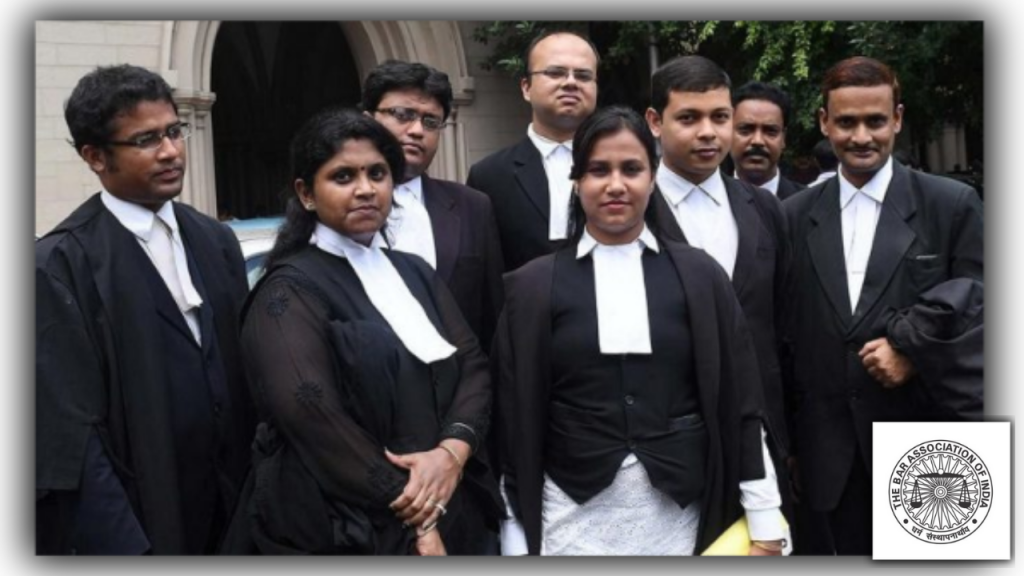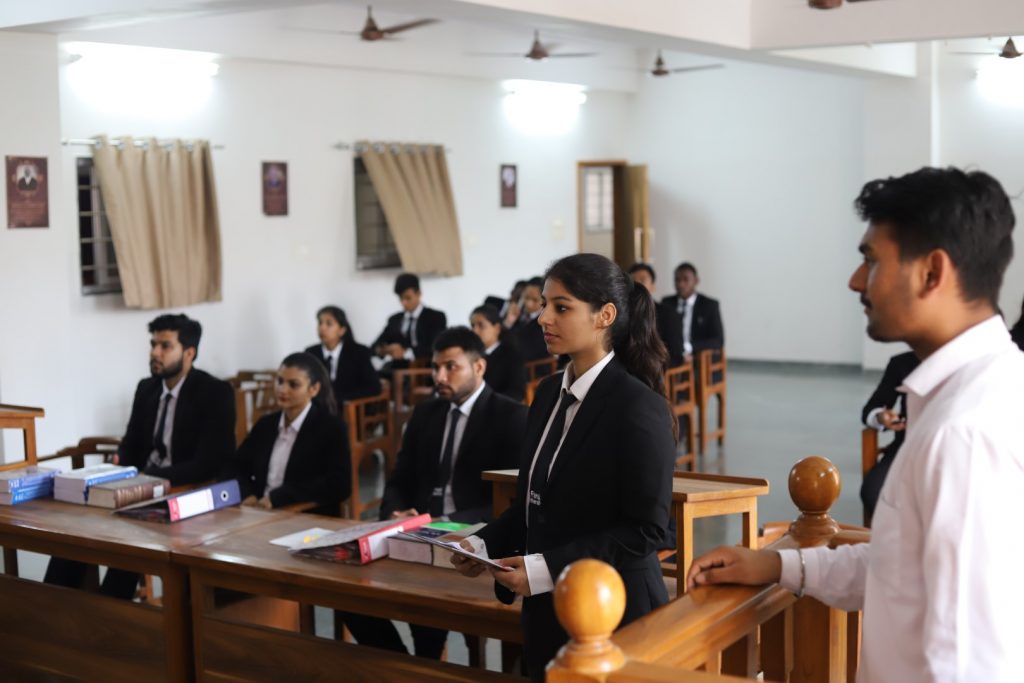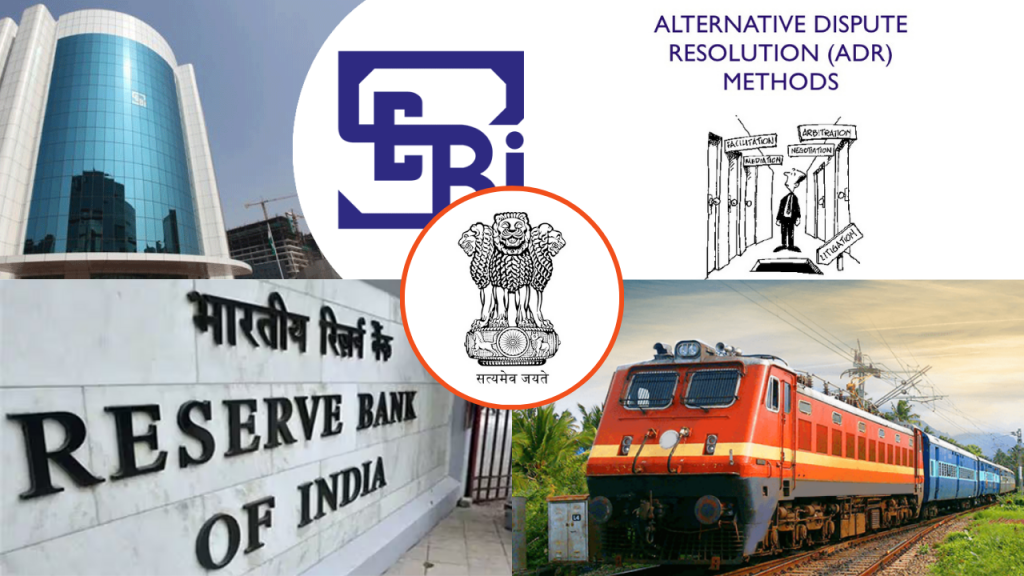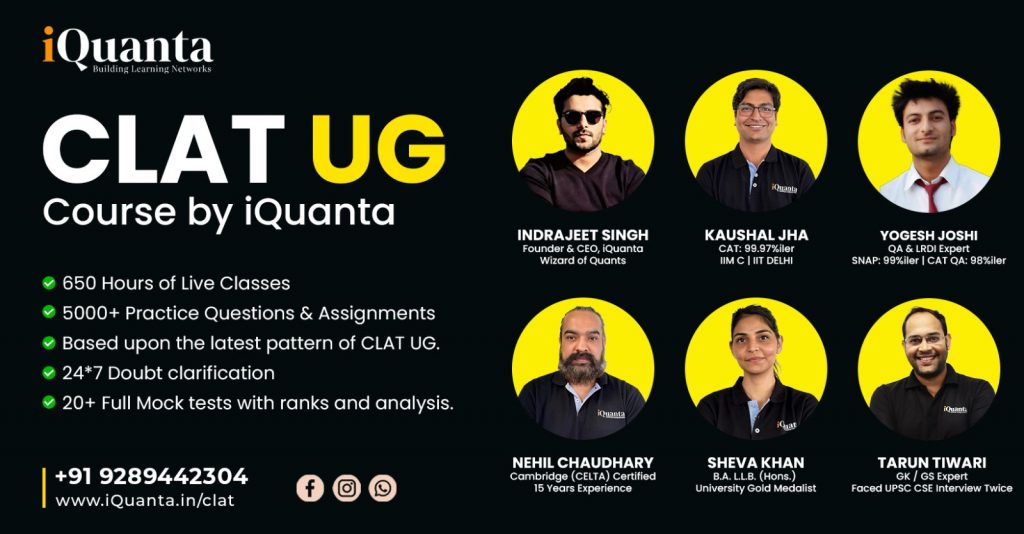Law as a career in India is in great demand and offers an innovative approach to dealing with life. Social and economic circumstances change rapidly in a developing country like India. This has brought in several regulations in every field and the demand for trained legal sciences degree holders has risen manifold. In other words, law as a career is both adventurous and exciting in India in the present scenario.
A Law degree empowers a person on different legal aspects and makes them sensitive to the needs of their family, friends, and the wider community on a day-to-day basis. In this Blog, we will introduce you to the Top 10 career opportunities in Law and their perks one after another.

Advocate
First in our list of Top 10 Career Opportunities in Law is An Advocate.

An Advocate is a person who argues for the cause of another person in front of any other judicial authority. This could be a civil matter such as a contractual dispute between two individuals, or a criminal matter where the State punishes those who commit crimes with imprisonment, etc. The majority of India’s legal professionals represent clients in courts and other judicial bodies. They handle a wide range of legal matters, including civil disputes, criminal cases, personal injury claims, and more. Their work primarily involves preparing and arguing cases in court, as well as negotiating settlements outside of court.
Also Read: Top Law Entrance Exams in India
How to Become an Advocate?
To Become an advocate to need to complete your higher secondary education after that you can either go for a five-year Integrated program like BALLB or BBALLB Or you can pursue graduation in any stream followed by a bachelor’s degree in law. Once you complete your LLB, you become a Lawyer and now you are just one step away from being an Advocate.
To be an Advocate, a lawyer needs to pass the All India Bar Examination(AIBE), which is an open-book exam conducted twice a year.
Also read: Top CLAT Colleges
Different types of lawyers
Once you become an Advocate, there are various fields you can choose to apply for. Different lawyers choose different specializations in law. While some lawyers prefer litigation, others prefer to practice corporate law, a very famous Career Opportunities in Law. Here are some of the popular law specializations to choose from:
Civil Lawyer
A Civil Lawyer is a professional who is also known as a litigator. He or she deals with disputes related to civil issues such as property settlement, dowry, divorce, business matters, and others. A career as a civil lawyer is required to resolve the issue by law and order. A civil lawyer represents in court on behalf of his or her clients. There are four types of civil law which include personal disputes, contract law, torts, and family law. A civil lawyer is primarily responsible for handling dispute cases of property, business, and other litigation cases.
Corporate Lawyer
Corporate law is one of the most lucrative Career Opportunities in Law, they work primarily with businesses and organizations, providing legal advice and guidance on a wide range of issues. Their work may involve helping companies navigate regulatory compliance, drafting and reviewing contracts, handling mergers and acquisitions, and more. Corporate lawyers may also represent their clients in court, but their primary role is to provide legal advice and help companies avoid legal issues.
Intellectual Property lawyers
Intellectual Property lawyers prepare legal documents, including patent applications, trademark registrations, licensing agreements, and cease-and-desist letters. They ensure that these documents are accurate, complete, and in compliance with relevant laws and regulations.
Criminal Lawyers
Criminal lawyers specialize in criminal cases and represent either the state or the party charged with the crime. Regardless of what side a criminal lawyer works on, it is their job to argue on behalf of their client’s legal interests. A career in criminal law can provide you with a good salary depending on your speciality and location. Criminal Lawyers are one of the higher paid Career Opportunities in Law.
Also Read: How to prepare for CLAT
CyberSecurity Lawyer
A cybersecurity lawyer is indispensable to an organization, helping it navigate the legal landscape of cybercrime, data privacy, and tech-related disputes. This profession provides numerous growth opportunities, as you can work for government agencies, multinational corporations, or small businesses.
Human Rights Lawyer
A lawyer who specializes in human rights law focuses on defending, addressing, and shaping laws pertaining to these issues, ensuring that all humans have the same basic rights and dignity.
Tax Lawyer
Helping taxpayers or companies meet their required tax obligations and filings while optimizing possible credits or deductions to lower those obligations is primarily what a tax attorney does. They help clients understand their options and make sense of complicated tax codes.
Average Salary and Growth Prospects
An Entry Level Advocate with less than three years of experience earns an average salary of ₹3.1 Lakhs per year. A mid-career Advocate with 4-9 years of experience earns an average salary of ₹5.0 Lakhs per year, while an experienced Advocate with 10-20 years of experience earns an average salary of ₹7.5 Lakhs per year. These being the average numbers, the highest salaries can be as high as 30 Lakh per year. Also, advocates practicing Criminal and Corporate law can have an edge over Career Opportunities when it comes to salary.
Judicial Magistrate

A civil officer or a minor judicial officer in specific areas like district, town, etc. is called a Magistrate. The magistrate is appointed by the high court. The mandate of the Magistrate is to handle minor cases. Basically, a Magistrate is a judicial officer with limited authority to administer and enforce the law. Once you have cleared the state judiciary exam, you can apply for the position of magistrate. You need to apply to the state Public Service Commission, which will forward your application to the state government. Once you are selected as a magistrate, you will undergo training at a judicial academy.
Also Read: CLAT Eligibility Criteria
JAG (Judge Advocate General)

One of the most Decorated Career Opportunities in law is JAG (Judge Advocate General). The Judge Advocate General’s (JAG) Department is the legal branch of the Indian Army. It deals with military-related disciplinary cases and litigation and assists in providing legal assistance to the army in human rights matters and the rule of law among other things. The department consists of legally qualified Army officers who are educated in military law and provide legal help to the military in all aspects. The department supports the Judge Advocate General who is the legal and judicial chief of India and advises the Chief of the Army Staff on legal matters. The JAG’s Department is also responsible for emerging fields of military law such as those related to cyber laws, space laws, terrorism, and human rights violations. The services rendered in the JAG’s Department are considered to be Judicial service as per the regulations for the Indian Army.
Legal Analyst

Legal analysts are legal specialists who support individual lawyers and legal teams. They are responsible for conducting research, assembling legal documents and evidence, and maintaining databases and tracking systems. They are skilled at conducting legal research, and they organize, assess, and file necessary documents and research and gather related legal information. They decipher laws, rulings, and regulations in legal papers and assemble, proof, and amend drafts including contracts or leases. Legal analysts monitor, study, and develop written summaries of legislation that could be anticipated or indoors.
Legal Analyst salary in India ranges between ₹ 2.1 Lakhs to ₹ 10.0 Lakhs with an average annual salary of ₹ 5.0 Lakhs.
Also Read: Best CLAT Books
Legal Advisor
A legal advisor is one of the most lucrative career opportunities in law. The role of a legal advisor is to provide clients or organizations with advice, guidance, and support related to a range of legal issues or concerns. They have an active role in preparing and reviewing contracts and other legal agreements or documents. They also guide or manage contract negotiations.

Legal Advisor salary in India ranges between ₹ 1.2 Lakhs to ₹ 13.9 Lakhs with an average annual salary of ₹ 5.9 Lakhs.
Legal Writer – Journalist
A Legal Writer, one of the Top 10 Career Opportunities in Law, is a person who specializes in providing any type of legal write-up for posting on a digital platform or for a legal filing. Legal writers and editors produce a wide range of written materials for the legal industry. From legal newsletters, brochures, and marketing copy to feature articles, web content, news reports, and attorney profiles, legal writing can take many forms. Legal writers prepare, draft, and edit written documents in or about the legal industry requiring varying degrees of expertise.

The average salary for a Legal Writer is ₹4,76,495 per year in India.
Also Read: NLU Fees Structure
Legal Researcher
The responsibility of a Legal Researcher is to conduct in-depth legal research on a wide range of legal topics and areas of law. Collect and analyze relevant data, legal documents, and case law to provide summaries and analysis. Organize and present research findings clearly and concisely. Prepare legal briefs, reports, memoranda, and other documents as required.

Legal Research is one of the most hectic Career Opportunities in Law, whose salary in India ranges between ₹ 0.8 Lakhs to ₹ 7.0 Lakhs with an average annual salary of ₹ 3.9 Lakhs for entry-level roles.
Paralegal
A paralegal is a professional of legal science who performs procedures autonomously or semi
autonomously, as part of a legal assistance system, and performing tasks that require
understanding of the legislation for its proper execution.
In other words, paralegals are professionals trained to assist lawyers in various legal capacities.
Paralegal duties entail more responsibility than clerical tasks and fall into a broad range of
substantive legal work. Paralegals conduct factual and legal research, draft legal documents,
work with clients, and manage cases. Many paralegals are involved in challenging and exciting
assignments that would otherwise be performed by lawyers, but paralegals may not provide
legal services directly to the public unless permitted by law.
Also Read: NLU Placement

In India, no formal position for paralegals exists. However, informally many advocates appoint
paralegals to assist them with their workload. Young law graduates who are working for
senior lawyers often perform the same work as that of a paralegal.
Lecturer
Another great Career option after LLB is teaching law in a college or university. The passion for teaching shouldn’t end after earning a fancy law degree. You can return to school and train an entirely new generation of students as soon as you finish your LLB.
Also Read: How to prepare for AILET Exam

One should possess a law degree whether 3 year LLB course or 5 year integrated course. After graduation, one should get a master’s degree in law(LLM). And after completing the master’s degree one should pass the UGC NET Exam.
Government Jobs in LAW

Despite plenty of opportunities in the private domain, there are also many Career Opportunities in Law in the Government sector. After completing a law degree whether a 3-year LLB course or a 5-year integrated course, one can also join government jobs. Following are the government jobs, that lawyers can aspire to:
Law Officer in Banks
The Law Officer ensures that all rules and regulations laid down by the Reserve Bank of India are followed by the bank, and prepares initial drafts of legislation administered or to be administered by the bank, prepares legal documents for different processes. Guides the bank to act as per various laws.
Different banks conduct their own examinations for the post of Law Officer, like SBI conducts the SBI PO(Law Officer) exam; RBI conducts the RBI Grade B Legal Officer Exam, eligibility for the same stipulates that candidates must have at least two years of professional experience. This experience can be acquired as an Advocate, candidates may have practiced law independently or with a law firm.
Also Read: CLAT Cutoffs of all the NLUs
SEBI Grade A
The Securities and Exchange Board of India is a regulatory organization for the Indian securities market whose head office is located in Mumbai. SEBI aims to protect the interests of investors in securities and to promote & regulate the development of the securities market. The SEBI releases notification for the recruitment of eligible employees for the post of Officer Grade A in the General, Legal, Information Technology Stream, Research, and Official Language streams every year, based on the number of vacancies.
The SEBI Grade A job profile and responsibilities are as follows:
- Looking after the legal issues of SEBI.
- Approving and amending stock exchanges by-laws.
- Inspecting accounts of stock exchanges and various players.
- Identifying and investigating any malpractices within the securities market.
- Taking steps to increase Investor’s knowledge of the securities market.
- Suspending security tradings of a stock exchange.
- Granting and withdrawing recognition of a stock exchange.
ADR Experts (Alternate Dispute Redressal)
Alternative dispute resolution (ADR) refers to the different ways people can resolve disputes without a trial. Common ADR processes include mediation, arbitration, and neutral evaluation. These processes are generally confidential, less formal, and less stressful than traditional court proceedings.
Also Read: CLAT Seats in all the NLUs
Advocate in Railway
Railways have set different eligibility criteria for different positions, though there are some basic qualifications required which is the same for all positions such as:
- Minimum Qualification LLB
- Enrolment Certificate of Practice at the BAR Issued by BAR Council.
- Desirable Qualification LLM
Positions and required experience are described in the following table:
| Court | Experience |
|---|---|
| Central Administrative Tribunal | Minimum Seven years experience in CAT or other equivalent judicial forum. Out of which two years of experience in handling railway cases is compulsory. |
| Railway Claims Tribunal | Minimum Seven years experience in RCT or other equivalent judicial forum. Out of which two years of experience in handling railway claims cases is compulsory. |
| District Court | Minimum five years experience in District court or other equivalent judicial forums including Consumer forum. Out of which one year experience in handling railway claims cases in District Court is compulsory. |
| Sub-ordinate Court | Minimum three years experience in Sub-ordinate court or other equivalent judicial forum including Consumer forum. Out of which six months experience of handling railway cases in Sub-ordinate Court is compulsory. |
The Experience Certificate of the Advocate shall be endorsed by the Chairman of the concerned Bar Council or his nominee. Then the eligible applicant shall send their application to the concerned Zonal Railways.
If you looking for a structured law preparation along with a 24*7 doubt-solving facility, you can rely on iQuanta’s CLAT Course for the CLAT exam.





